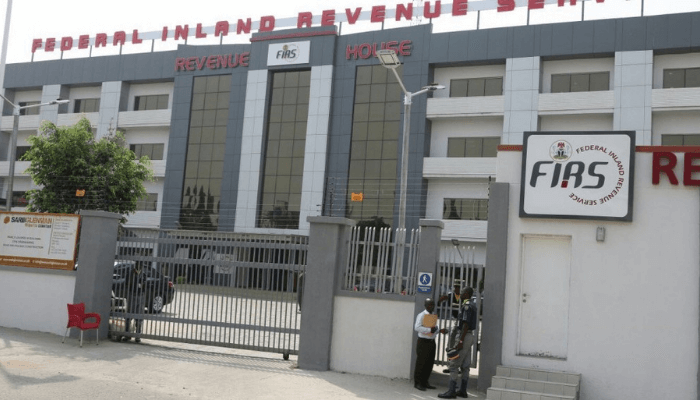The Federal Inland Revenue Service (FIRS) has defended the Federal Government’s borrowing framework, insisting that the country’s debt profile remains within sustainable limits when weighed against ongoing reforms, projected revenue growth, and fiscal consolidation plans.
Speaking against the backdrop of mounting concerns over Nigeria’s rising debt stock and borrowing costs, the FIRS emphasized that public debt should be viewed in relation to revenue-generating capacity and economic growth, not just as isolated figures. The Service maintained that recent fiscal and tax reforms are designed to boost revenue and enhance the government’s ability to meet its obligations without jeopardizing financial stability.

Nigeria’s total public debt currently stands above ₦121 trillion, a figure that has drawn criticism from economists and civil society groups worried about the growing debt service-to-revenue ratio. However, the FIRS explained that borrowing has been targeted toward productive sectors, infrastructure development, and budgetary support — measures expected to yield long-term growth dividends.
According to the tax authority, part of the rationale for borrowing is to bridge shortfalls in critical funding areas while ongoing tax reforms are positioned to expand the revenue base. “The Federal Government’s borrowing is guided by a structured framework that prioritizes sustainability, transparency, and accountability. With reforms being implemented to strengthen non-oil revenue, debt repayment capacity is expected to improve significantly,” the FIRS stated.
One of the reforms being highlighted is the ongoing effort to expand the tax net and block leakages. The FIRS noted that policies such as the automation of tax collection, harmonization of taxes, and the newly introduced measures under the Tax Reform Committee are aimed at generating additional revenue of trillions of naira in the coming years. The Service believes that this will ease the pressure on government borrowing and gradually reduce reliance on debt to finance budgets.
Observers also point to the government’s improved fiscal discipline as a factor supporting the borrowing framework. Recent moves such as rationalizing expenditures, implementing subsidy reforms, and introducing cost-saving measures across ministries, departments, and agencies (MDAs) are expected to free up more funds for debt servicing and capital investment.
Analysts have, however, expressed mixed reactions. Some argue that while the borrowing strategy may be sustainable on paper, the challenge lies in ensuring that borrowed funds are invested in projects with clear returns on investment. They warn that without significant improvements in public financial management and project delivery, debt sustainability could be compromised in the medium term.
FIRS officials counter this by pointing to landmark projects financed through borrowing, such as major road networks, railway expansion, power infrastructure, and industrial development initiatives. They argue that these investments are not only enhancing productivity but also expanding the tax base in the long run.
In addition, the Service noted that Nigeria’s debt-to-GDP ratio, which hovers around 45 percent, remains within internationally accepted thresholds. It emphasized that comparisons with advanced economies, where debt-to-GDP ratios often exceed 100 percent, show that Nigeria’s challenge is not excessive borrowing but limited revenue mobilization.
The FIRS therefore urged stakeholders to view borrowing within the broader economic reform agenda, particularly efforts to boost internally generated revenue. By improving compliance, expanding the tax net, and leveraging technology, the Service believes the government can balance debt obligations with economic growth needs.
In defending the framework, the FIRS also underscored Nigeria’s improved global engagement, including its strong relationship with multilateral institutions and bilateral partners. These, it said, provide a level of credibility and support to the country’s borrowing activities while opening the door for concessional loans with favorable terms compared to commercial borrowing.
The Service called for patience, stressing that the impact of reforms takes time to materialize. “What is critical is that Nigeria is on the right track. The reforms are comprehensive, the framework is sound, and the focus is on sustainable development. Borrowing is a tool — what matters is how it is managed, and we are confident that the framework remains robust,” it noted.
Economists agree that for the borrowing plan to be truly sustainable, government must continue to strengthen transparency and accountability in debt management. Calls have been made for more citizen engagement in budget planning and better monitoring of projects funded through debt. Experts also stress that reforms in sectors such as energy, agriculture, and manufacturing must accelerate to ensure Nigeria generates enough revenue to meet both domestic and international obligations.
The FIRS concluded by reaffirming its commitment to driving revenue reforms as the backbone of debt sustainability. With tax reforms, digitalization of revenue collection, and new compliance measures, the Service expressed optimism that Nigeria will achieve a healthier fiscal balance and gradually reduce its dependence on borrowing.
As debates over Nigeria’s debt profile continue, the FIRS’ defense of the Federal Government’s borrowing framework sends a clear message: while concerns are valid, reforms and improved revenue mobilization are expected to provide the cushion needed to sustain debt obligations and finance long-term growth.
Support InfoStride News' Credible Journalism: Only credible journalism can guarantee a fair, accountable and transparent society, including democracy and government. It involves a lot of efforts and money. We need your support. Click here to Donate
